The 6 best foundations for dry skin that promise coverage and a hydrated glow all at once
From sheer, hydrating tints to long-lasting and glowy full coverage, these are the best formulas for dry skin, as tested by us.
Naomi Jamieson
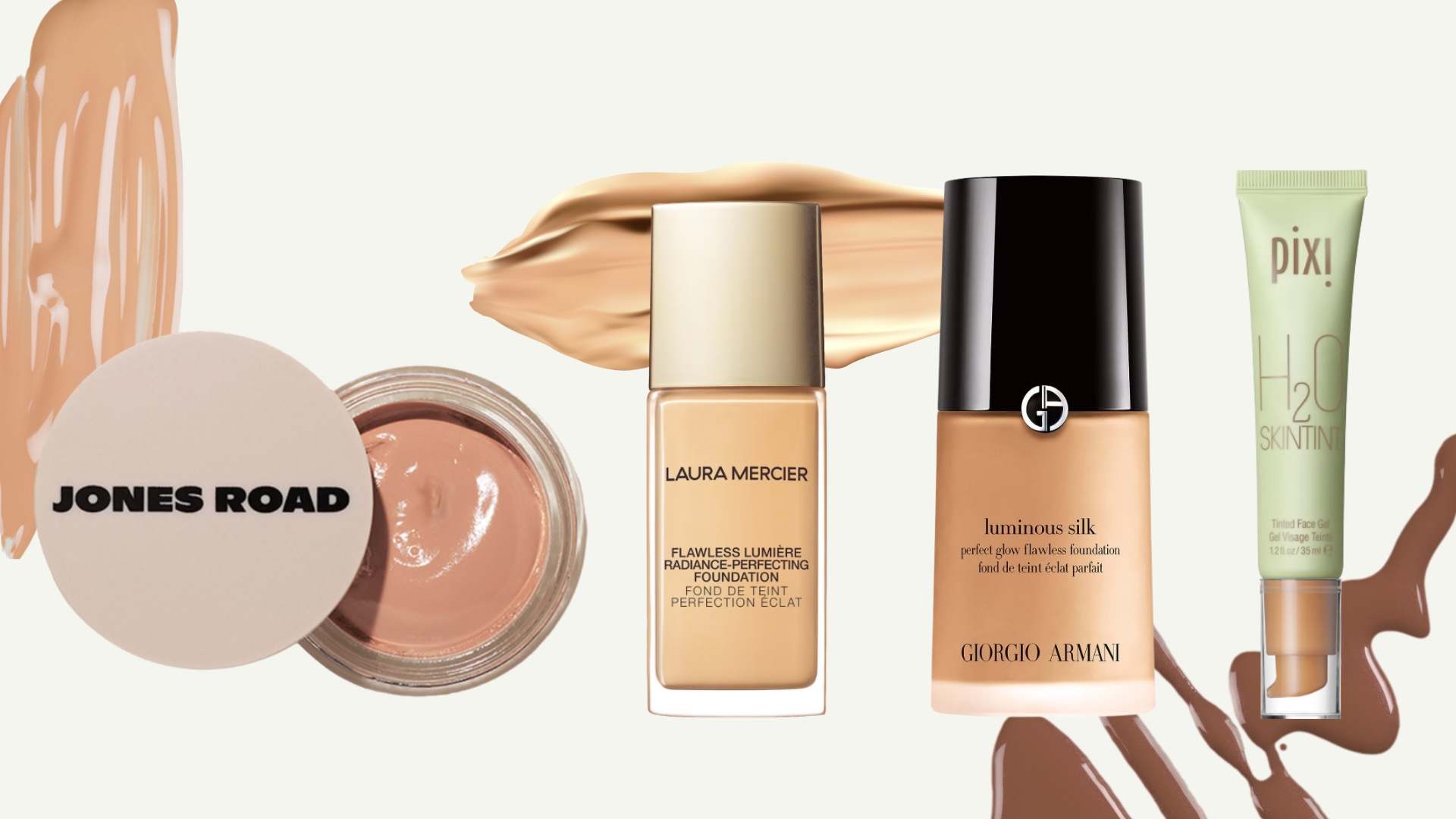
On the hunt for the best foundations for dry skin? We know a thing or two about rough and dehydrated complexions; in fact, most people experience some form of dryness, especially in the cold. Thankfully, there are formulas out there that have been specifically designed to combat it, and these six have our seal of approval...
When it comes to your base products, the best foundations should cater to your specific skin type. For oily skin, a matte formula that absorbs excess oil is beneficial, while a foundation packed with moisture-locking ingredients like hyaluronic acid is a great option for drier skin. That said, it can be difficult to find a product that ticks all the boxes for the latter. Of course, we want hydration, but also long-lasting coverage that won't flake or settle and accentuate any fine lines and stubborn patchiness. "I suggest foundations that are creamy rather than powder-based, in order to protect the skin," says Emma Coleman, a dermatology and aesthetic registered general nurse.
Finding a foundation that works in harmony with your skin type can be really transformative to your routine and the way the rest of your makeup sits. So, if you're keen to keep chapped skin at bay, these are the six, tried and tested foundations to invest in - for both coverage and dewy radiance.
The 6 best foundations for dry skin, according to our team
Selecting a new foundation for dryer skin types isn't always a straightforward task. There's a lot to consider, from the finish to how well it wears throughout the day. It also pays to look for hydrating ingredients, like glycerin, hyaluronic acid, and Vitamin E. Coleman notes that, "Vitamin E is an ingredient often used in mineral makeup as it promotes proper skin healing, so is kinder to dry skin."
With all of this in mind, though, we have six foundations for you (all tested by us), ranging from lightweight tints to buildable and seriously glow-boosting formulas, all suitable for dry skin and a range of budgets...
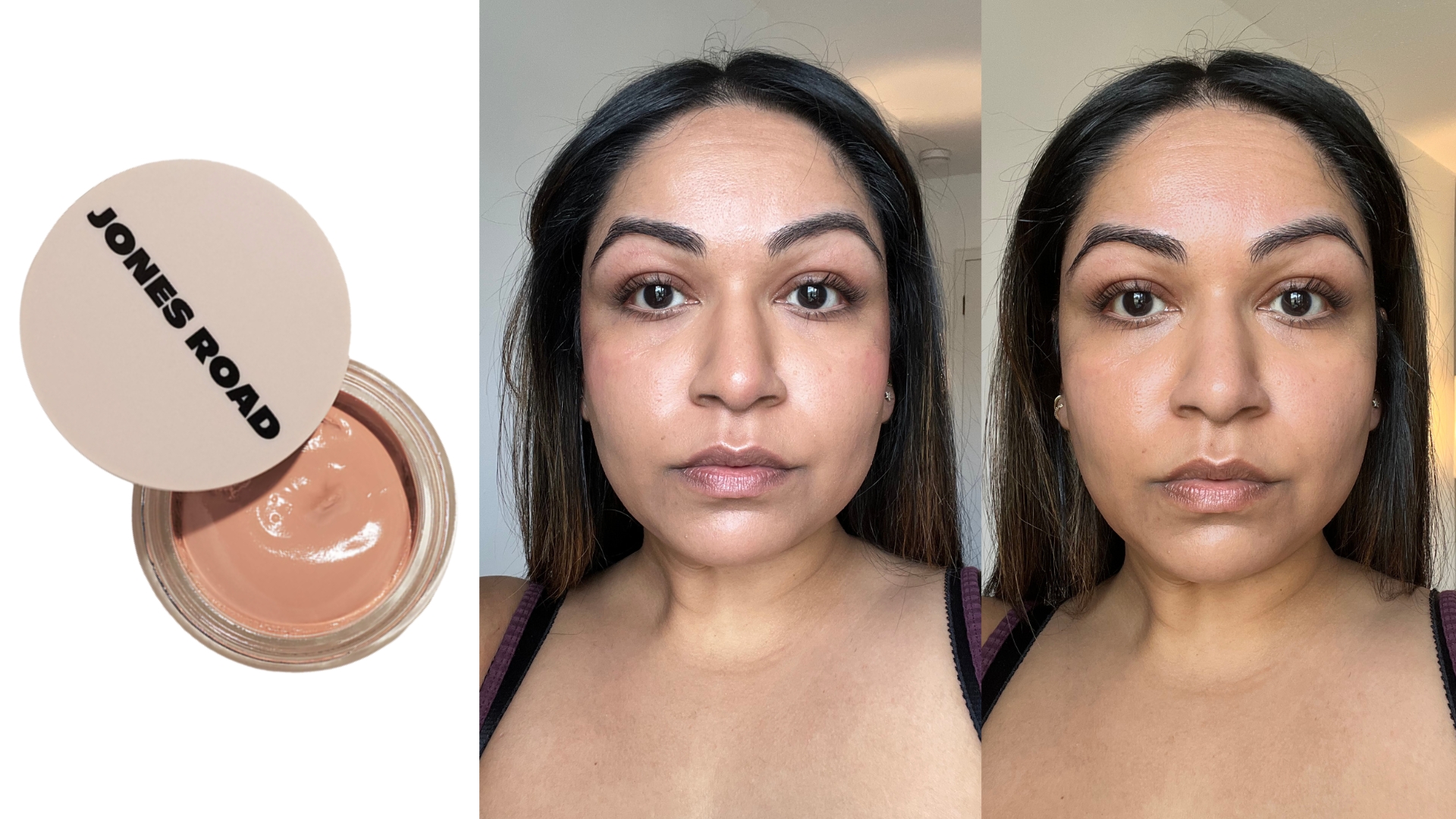
RRP: £44 | Shades: 12 | Coverage: Light-Medium | SPF: No
Tested and reviewed by: Aleesha Badkar and Amelia Yeomans
Amelia: WTF is certainly unlike any other foundation I've tried, as it comes packaged in a pot and performs almost exactly like paint. It may be unusual, but when it comes to the best foundations for dry skin, this is undoubtedly one of our absolute favourites.
When testing, I found that the smooth, lightweight consistency is extremely buildable, allowing for customizable coverage depending on your preference. Formulated with jojoba oil and sodium hyaluronate, it has a deeply nourishing consistency that I found really did compare to the best face moisturisers. I noticed that it doesn't cling to dry patches or accentuate any problem areas, so you can expect an even and healthy-looking base. For the best results, WTF should be applied with the hands and rubbed in, so it behaves like a skincare product. A little bit goes a very long way with this foundation, so you can expect it to last you a while.
Pros
- Extremely hydrating
- Features skin-nourishing ingredients
- Cruelty-free
- Unique formula
Cons
- Slightly messy
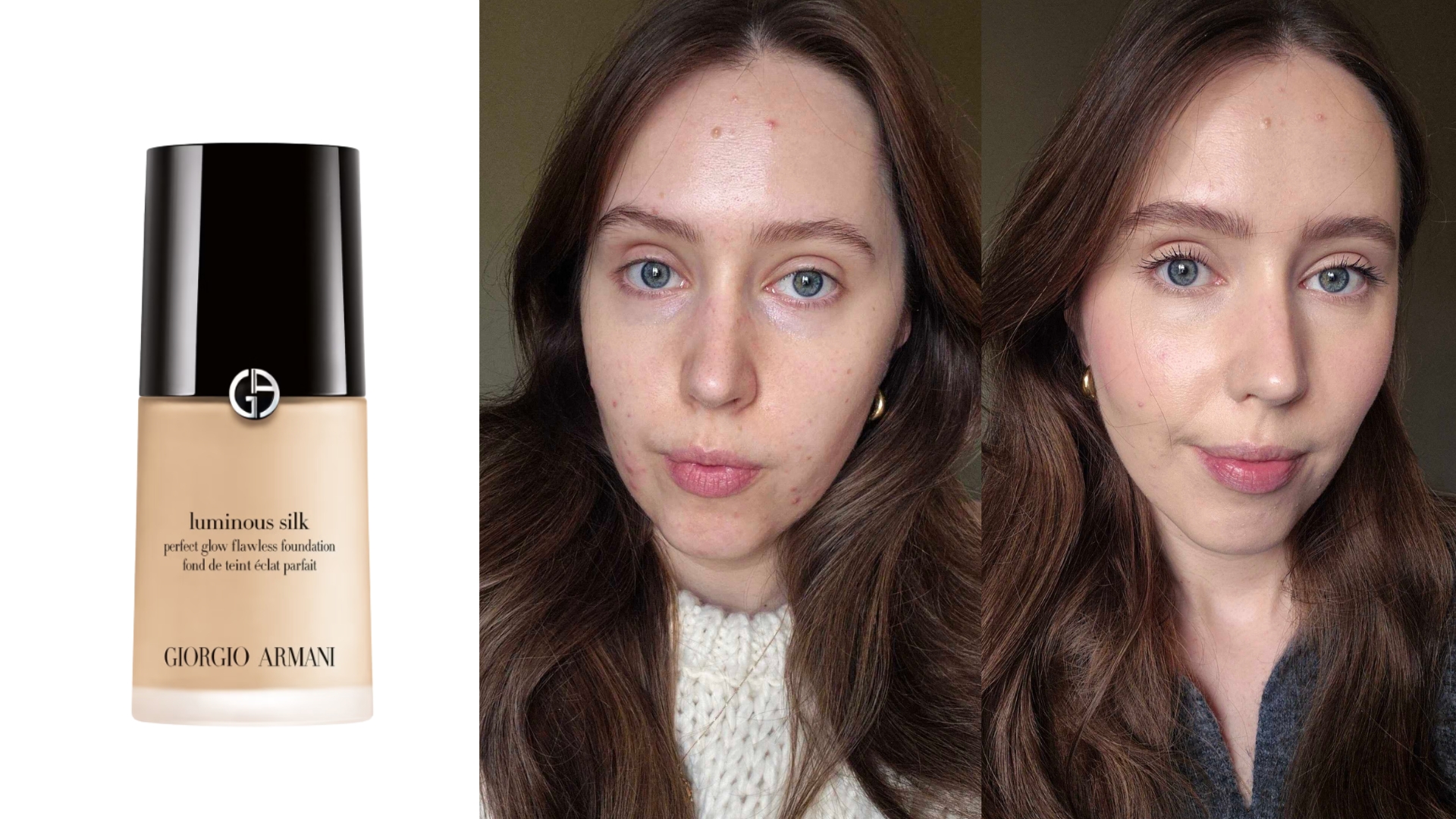
RRP: £47 | Shades: 40 | Coverage: Medium | SPF: No
Tested and reviewed by: Naomi Jamieson
For those who want coverage and a natural-looking radiance, Armani's Luminous Silk is the way to go. True to its name, it glides onto the skin and blends out seamlessly. You can layer it for an extra blurring effect, which I love, without the formula appearing cakey. In fact, no matter how much I apply, my complexion maintains that dewy, hydrated glow - thanks to ingredients like glycerin.
Its silky formula also feels so lightweight, but even still, it does a great job at smoothing over blemishes and masking pores. Longevity-wise, it's one of the best luminous foundations I've tried, as unlike some, that glow doesn't shift to oily within hours of wear. It stays put and doesn't separate or cling to my texture. I'd say this is a great option if you're looking for a reliable, everyday foundation that hides blemishes, whilst still allowing for more of a subtle finish - depending on how much you apply, it doesn't look too 'done,' or obvious on the skin.
Read our Beauty Writer's full thoughts on Armani's Luminous Silk here.
Pros
- Buildable
- Silky, easy to blend formula
- Is a best-seller
Cons
- Slightly pricey
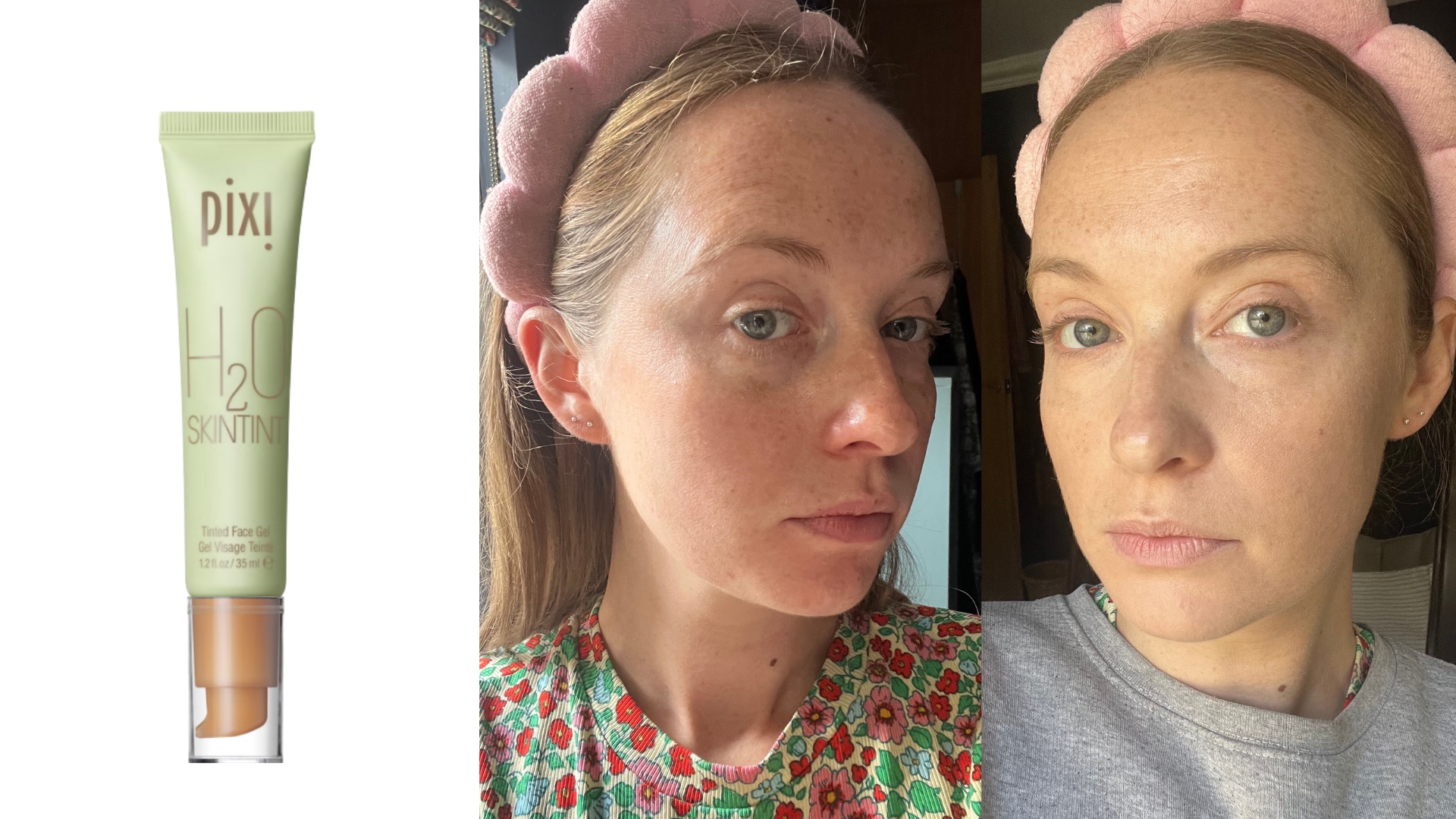
RRP: £24 | Shades: 18 | Coverage: Light | SPF: No
Tested and reviewed by: Annie Milroy and Amelia Yeomans
Amelia: This foundation is one of our team's all-time favourites for every skin type, particularly dry skin, thanks to the deep hydration it provides. The clue is in the name with this, as it really does feel like water, both when you apply it and once it's settled on the skin. Pixi describes it as a tinted face gel, but I think it has a thinner and more liquid texture than your typical gels, which I loved when testing. It glides on effortlessly, even over drier patches, and never clings. For the best results, I recommend applying this with your hands.
The coverage is on the sheer side; it will even out redness and cover small blemishes, but those who are acne-prone may want to use concealer underneath. But the best part is how lightweight it is, meaning it can be layered without feeling at all heavy. With a light, quenching formula to rival the best body creams for dry skin, it is ideal for those who want a foundation that feels more like skincare than makeup. The only thing it is missing is sun protection, but simply apply a face moisturiser with SPF before your foundation, and you're good to go.
Pros
- Extremely comfortable wear
- Very hydrating
- Natural finish
- A little goes a long way
Cons
- Doesn't provide much coverage
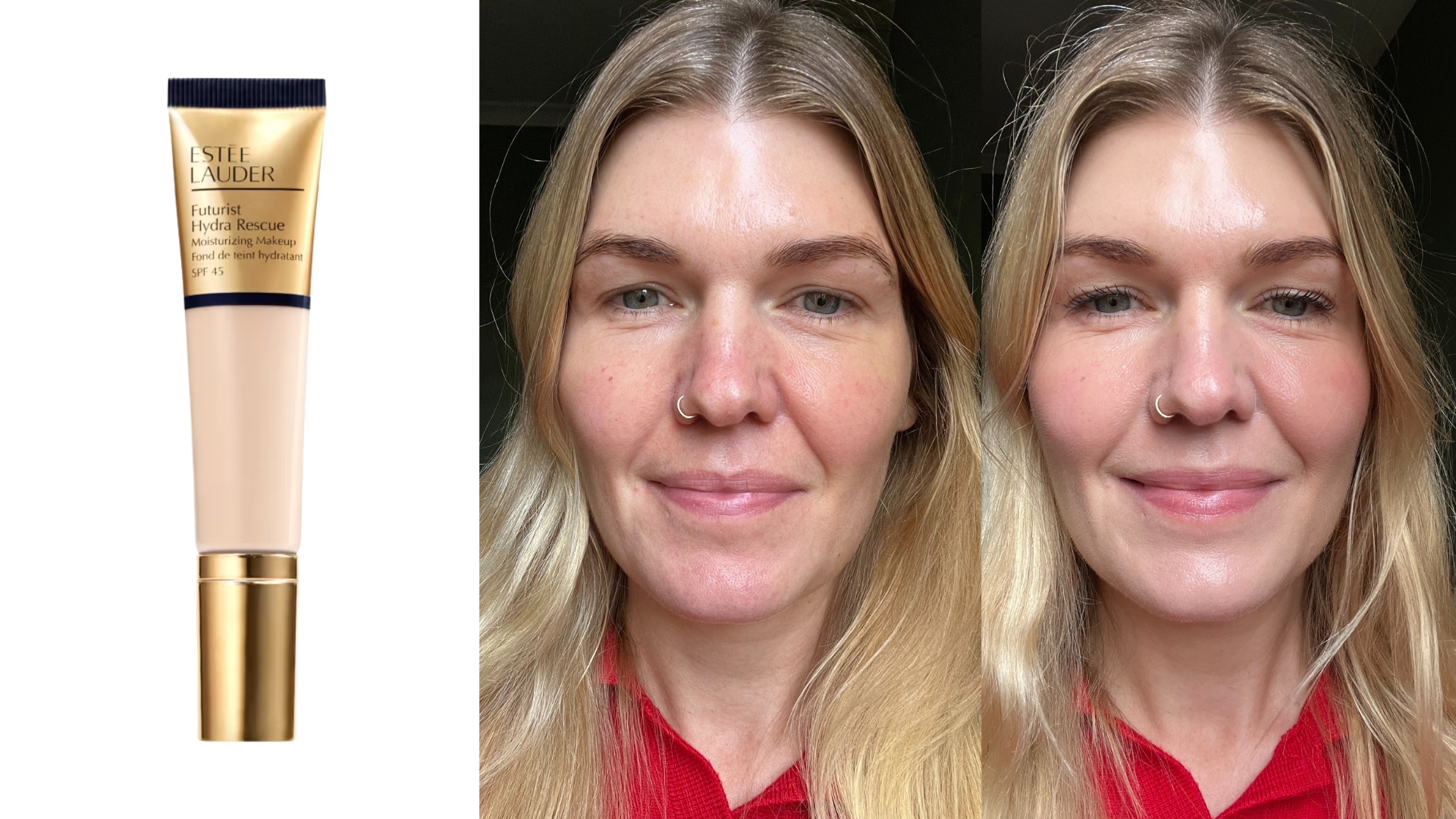
RRP: £42 | Shades: 28 | Coverage: Medium-Full | SPF: Yes
Tested and reviewed by: Fiona McKim
Estée Lauder foundations are renowned for their impressive coverage and comfortable wear, and this is no different. This combination of hydrating radiance and full coverage is unusual, but Futurist Hydra Rescue pulls it off. Expect to feel as good as you look after applying this to dry skin.
That soft and hydrating formulation includes glycerin, hyaluronic acid, and nourishing seed oils, which gives this its loose, easily blended texture. I found that once set, the coverage is anywhere between medium and full, depending on how much you want to build it up, always with a juicy, radiant finish. High factor SPF45 is a great addition, and thanks to that full-cover pigment, I found that it doesn't alter the coverage or finished look in any way.
See our full Estée Lauder Futurist Hydra Rescue review
Pros
- Very hydrating
- Lasting coverage
- Flawless finish
- Breathable
Cons
- Not for those who prefer a barely-there look
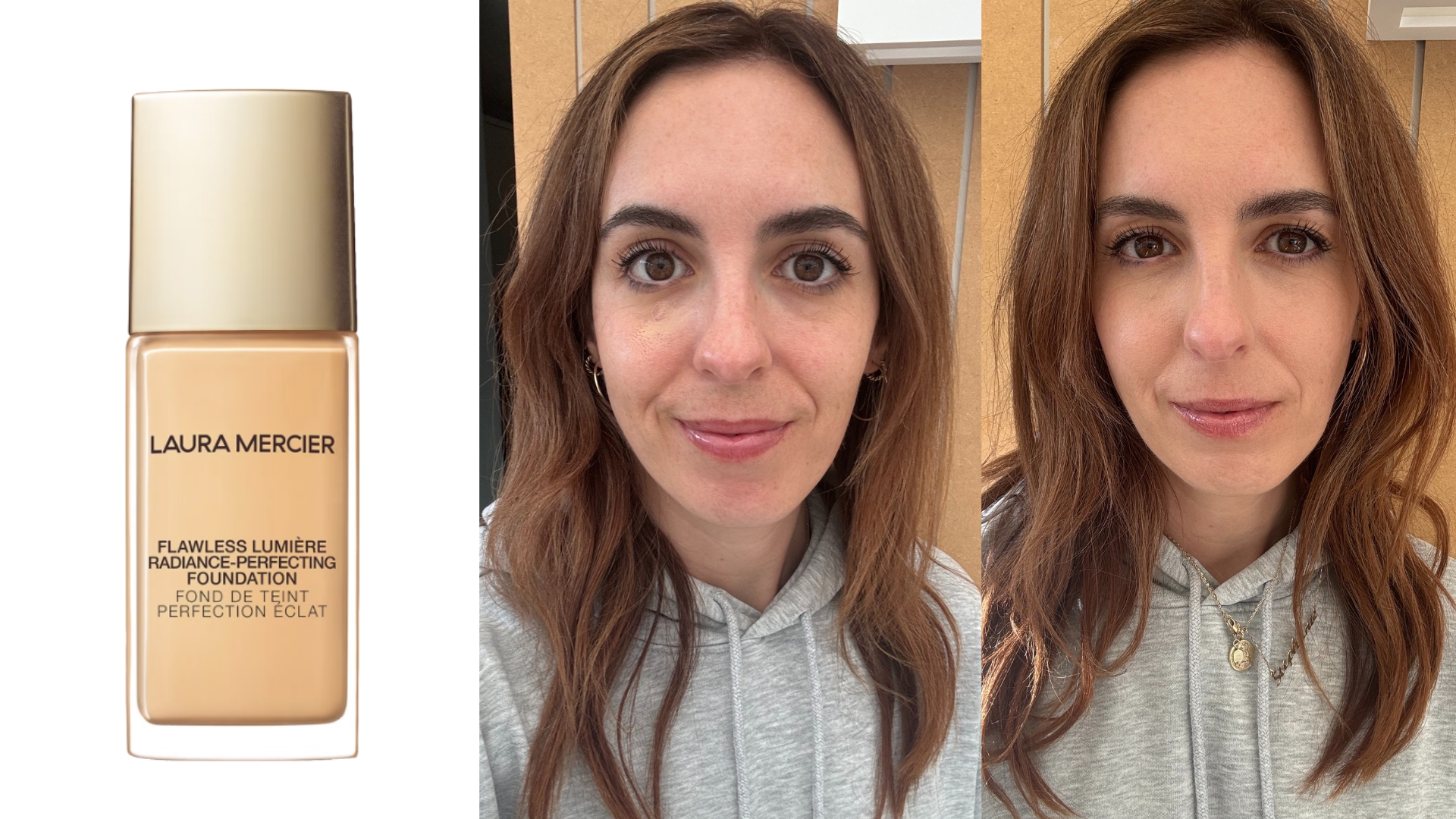
RRP: £37 | Shades: 30 | Coverage: Medium-Full | SPF: No
Tested and reviewed by: Stephanie Maylor and Amelia Yeomans
Amelia: Lovely Laura Mercier is the queen of skin-loving cosmetics, and this foundation is no exception. When testing, I was struck by the healthy glow it gave my skin, which looked totally natural and flawless. Providing 15 hours of hydration and medium-full coverage, it has all the best qualities of the brand's iconic tinted moisturisers with some added luminosity.
As well as the beautifully natural, healthy coverage you would expect, I found that this formulation is light and silky enough not to settle into wrinkles and works with the natural moisture layer in your skin's epidermis to prevent water loss. The vitamin C in the formula boosts your skin's luminosity gradually over time, to give your best Vitamin C serum a helping hand. With skincare and a flawless finish in one product, this is definitely one of the best foundations for dry skin on the market.
Pros
- 15 hours of hydration
- Contains Vitamin C to brighten skin
- Glowing finish
Cons
- No SPF protection
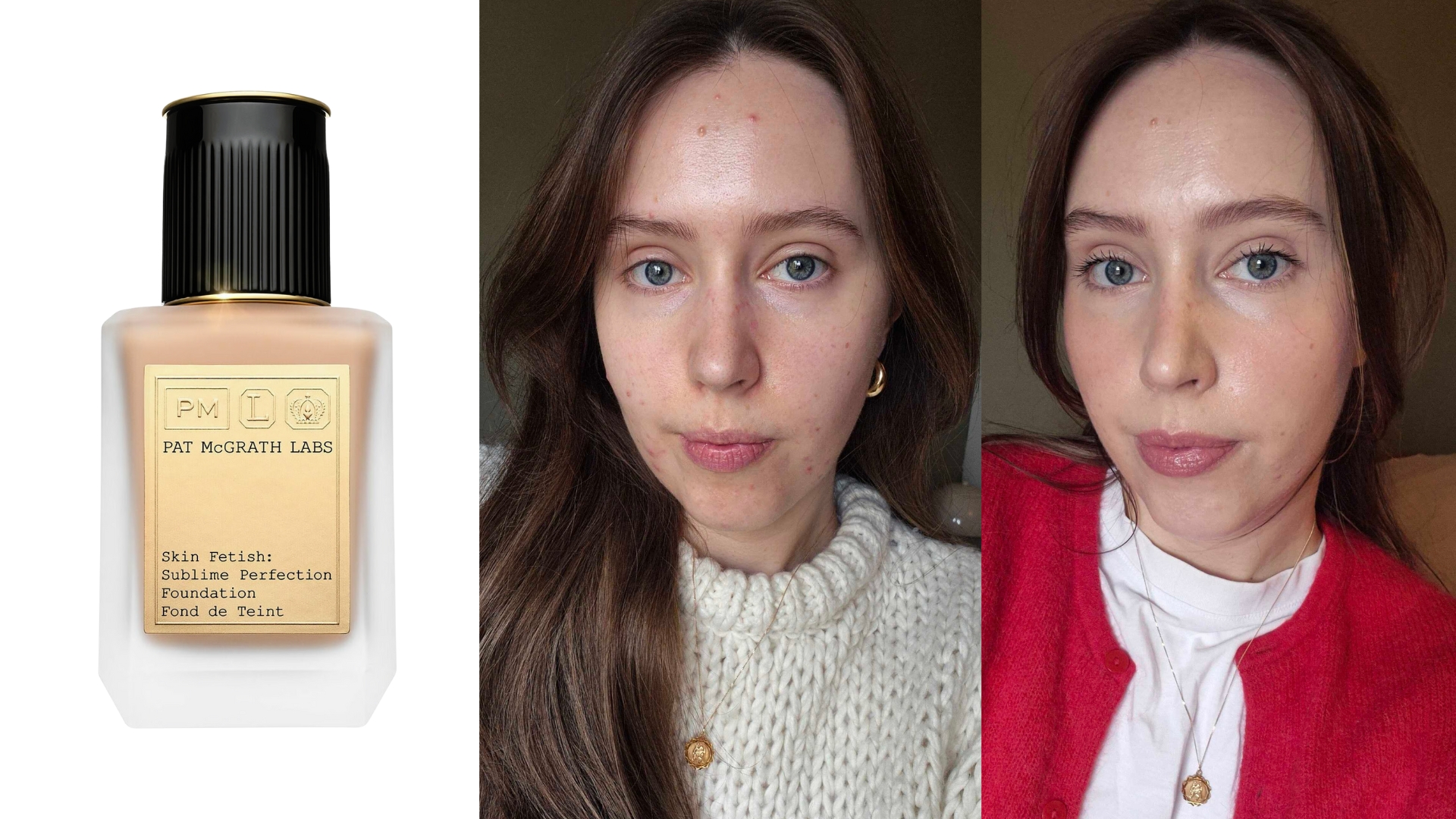
RRP: £61 | Shades: 36 | Coverage: Sheer-Medium | SPF: No
Tested and reviewed by: Naomi Jamieson
As someone with stubbornly dry skin, this is one of my favourite foundations day-to-day, thanks to its sheer but buildable formula. If you're a fan of the best serum foundations, this is definitely one to have on your radar, as it feels weightless when applied and really melts into your skin with very little encouragement or blending.
It's very hydrating, with ingredients like hyaluronic acid and ceramides working to nourish your complexion and boost its radiance. It also features Diamond Core Powder, which is described as a 'real-life filter' by diffusing light and blurring imperfections. This all culminates in a soft, satin-y finish that looks incredibly natural and dewy - it also photographs beautifully, making it a great option for special occasions.
Pros
- Weightless
- Has a serum-like, buildable feel
- 12-hours of wear
- Cruelty-free & vegan
- Non-comedogenic
Cons
- Pricey
- Some may prefer more coverage
How we tested the best foundations for dry skin
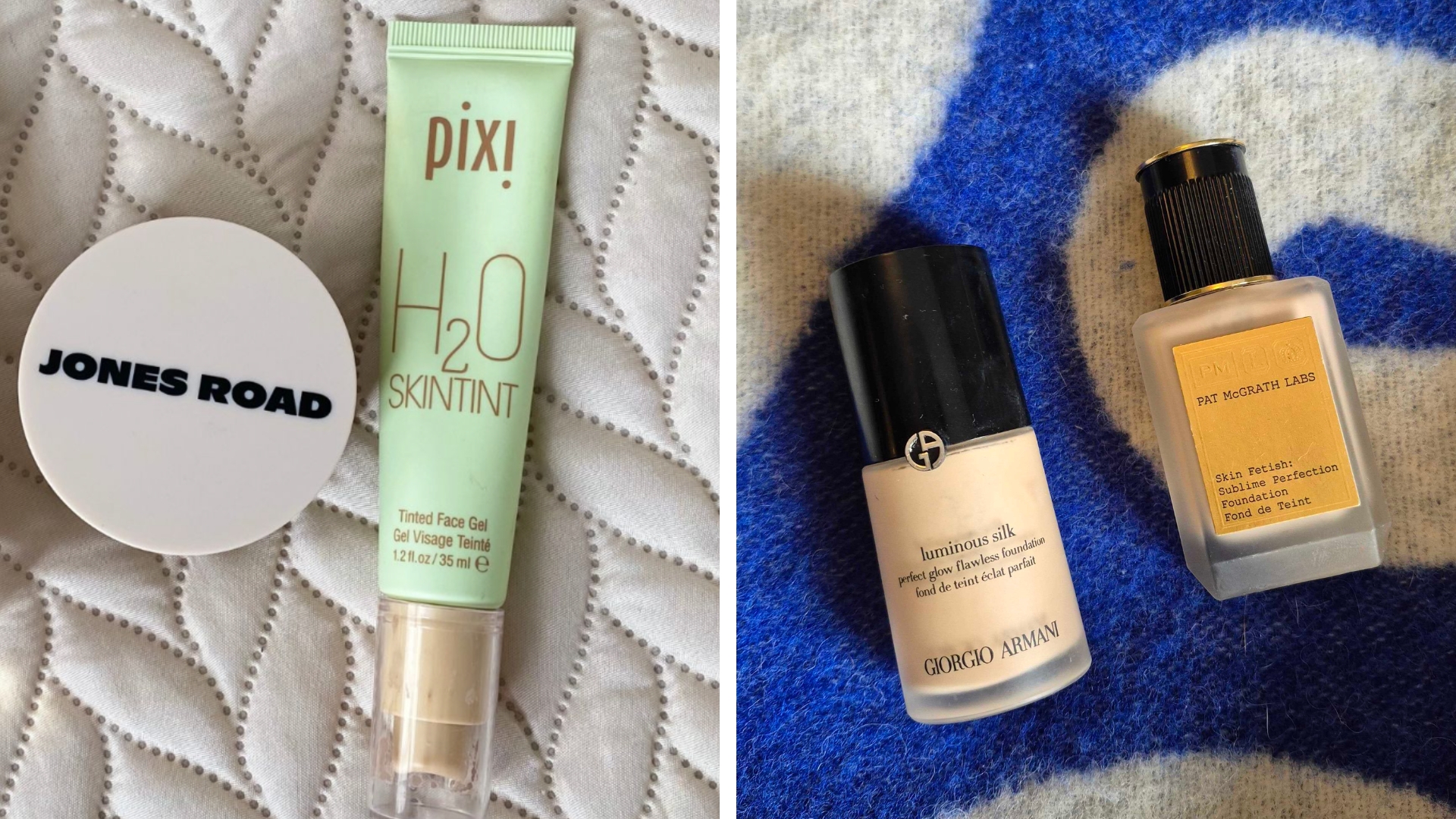
A selection of the foundations we tested for this guide
In order to make your foundation look its best, you need to be working with the right type of product for your skin. That's why we thoroughly tested each foundation included in this guide to see how it applied, dried down, how it wore on the skin throughout the day, and if it clung to dry patches.
We also took a look at ingredients and price points in order to determine if each foundation was worth the price tag. Every foundation included in this guide was tried and tested for at least one whole day, often several, to determine which was the best of the best and make finding your perfect foundation match that little bit easier.
Which type of foundation is best for dry skin?
- Oil and water bases: Foundations tend to be either oil, water or silicone-based, and the best foundation for dry skin is usually oil and water-based. This is because hydration is key. Water-based foundations will glide smoothly over dry patches, tend to feel loose and buildable, and are a good choice if you're generally happy with your skin tone and like only light, sheer coverage.
- Lighter coverage: Heavy matte textures can drag over rough patches and sink into lines so it’s best to stick to lighter coverage and then use concealer on areas that need it.
- Skincare oils: Oils penetrate the skin far more slowly than water, so will essentially 'sit' on the skin, creating a lasting, nourishing layer that stops your foundation's pigment from settling into lines and flakiness from appearing throughout the day.
- Dewy finishes: The finish you opt for is down to personal preference but dewy finishes typically work best to combat dry skin. Whichever type you go for, skin prep is the most important factor. “Regardless of your skin type, you should always apply moisturizer right before any makeup," explains Amy Anzel, beauty expert and CEO of Hollywood Browzer. l. "It is key for ensuring that your foundation and other base products sit on the top of your face."
Is cream or liquid foundation better for dry skin?
Both can work nicely as liquid foundations veil over dry or rough patches more easily, yet cream formulas often include nourishing oils that work to tackle long-term dryness. If you aren't sure which foundation is best for you, looking at the ingredients is a better call than solely thinking about texture.
We recommend looking out for glycerin, hyaluronic acid, and other hydrators, such as aloe leaf juice and coconut water. Glycerin is always good news on a label. It's a humectant, which means it attracts water to the skin's surface and bolsters the barrier function (the part of your skin that stops natural hydration from escaping).
Hyaluronic acid is pretty much universally loved by beauty editors and brands so look out for that too. Not actually an acid, this sugar famously draws in and holds onto up to 1,000 times its own weight in water, so smooths and plumps skin from within.
How can I make my foundation last longer with dry skin?
The key to achieving a long-lasting foundation look for dry skin lies in a few different places, but one of the most important factors is how you set your makeup. After applying your foundation, "continue with your concealer and powder in thin layers. This will give you more coverage without making your skin look cakey and also prevent any creases throughout the night," advises Anzel. "The trick is to try stippling powders on your face instead of buffing. The tapping of the products will keep your liquids from moving and lock them in all night.”
Does dry skin need primer?
The best primers for dry skin can be extremely beneficial for hydration, increasing makeup wear time, stopping products from clinging to dryness, and forming a smooth and even layer for makeup application. However, they are not essential if you are prepping your skin correctly with skincare and using the best foundations for dry skin.
If you are looking for a lighter alternative to primers, Anzel recommends trying a toner or face spray. "If you have dry skin, the best way is to use mist toners. The refreshing sprays can keep your skin hydrated, dewy, and plump before applying moisturizer,” she explains.
Sign up to our free daily email for the latest royal and entertainment news, interesting opinion, expert advice on styling and beauty trends, and no-nonsense guides to the health and wellness questions you want answered.

As woman&home's Beauty Channel Editor, Fiona Mckim loves to share her 15+ years of industry intel on womanandhome.com and Instagram (@fionamckim if you like hair experiments and cute shih-tzus). After interning at ELLE, Fiona joined woman&home as Assistant Beauty Editor in 2013 under industry legend Jo GB, who taught her to understand ingredients and take a cynical approach to marketing claims. She has since covered every corner of the industry, interviewing dermatologists and celebrities from Davina McCall to Dame Joan Collins, reporting backstage at London Fashion Week and judging the w&h Beauty Awards.
- Naomi JamiesonDigital Beauty Writer

